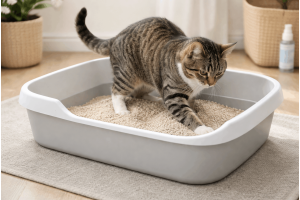How to Keep Your Skin Looking Younger for Longer

Aging is a natural process, but the way skin changes over time depends on various factors, including lifestyle, skincare habits, and professional treatments. Fine lines, loss of elasticity, and uneven texture often become more noticeable with age, but there are ways to slow down these effects. With the right combination of treatments, daily care, and healthy routines, maintaining a youthful appearance is possible. From advanced procedures to simple at-home steps, several approaches can help keep skin firm, smooth, and radiant for years to come.
Refining Your Look with Facetite
Aging skin often brings sagging, wrinkles, and loss of definition, particularly in the lower face and neck. Non-surgical solutions can make a difference, with Facetite standing out as a leading option. This treatment uses radiofrequency energy to tighten skin and stimulate collagen production, creating a firmer and more youthful appearance. Choosing experts like those at https://ascension.com.au/facetite-brisbane/ ensures the procedure is performed safely and effectively, maximizing its benefits. Many people turn to this method when looking for long-term improvements without the need for invasive surgery.
The Role of Hydration in Skin Health
Proper hydration plays a significant role in maintaining a youthful appearance. Skin that lacks moisture often looks dull, feels rough, and is more prone to fine lines and wrinkles. When the body is well-hydrated, the skin retains its elasticity and appears plumper, making signs of aging less noticeable. Drinking enough water throughout the day supports the skin’s natural ability to repair itself, flush out toxins, and maintain a smooth texture.
While internal hydration is essential, applying moisture externally is just as important. Skincare products containing hyaluronic acid help attract and retain water within the skin, creating a supple and refreshed look. Moisturizers with ceramides and glycerin strengthen the skin barrier, preventing dehydration and reducing sensitivity. Hydrating masks and facial mists can provide an extra boost, especially in dry or cold weather when moisture loss increases.
Nutrition’s Impact on Skin Aging
What goes into the body has a direct effect on how the skin looks. Antioxidant-rich foods, including berries, nuts, and leafy greens, combat free radicals that contribute to premature aging. Omega-3 fatty acids, found in salmon and walnuts, help maintain skin’s elasticity, while vitamin C promotes collagen production. Processed foods, sugar, and excessive alcohol can accelerate aging by causing inflammation and breaking down collagen. A balanced diet filled with nutrients gives the skin the best chance at staying firm and radiant.
Sun Protection for Long-Term Youthfulness
Exposure to the sun plays a major role in how the skin ages. Ultraviolet (UV) rays break down collagen and elastin, leading to wrinkles, sagging, and discoloration over time. Prolonged sun exposure can also cause dark spots, uneven tone, and rough texture, making skin appear older than it is. One of the most effective ways to prevent these issues is by applying a broad-spectrum sunscreen with at least SPF 30 every day, regardless of the weather. Even on cloudy days, UV rays penetrate the skin and contribute to premature aging.
Beyond sunscreen, additional protective measures can help minimize damage. Wearing wide-brimmed hats and sunglasses shields the face from direct sun exposure, while lightweight, long-sleeved clothing adds an extra layer of defense. Seeking shade during peak sunlight hours, typically between 10 a.m. and 4 p.m., reduces the risk of excessive UV exposure.
Skincare Ingredients That Support Longevity
Choosing the right skincare products can slow visible signs of aging. Retinoids, derived from vitamin A, accelerate cell turnover and boost collagen production, making them a staple in many anti-aging routines. Peptides help strengthen the skin’s structure, improving firmness and elasticity. Vitamin C brightens and evens out skin tone while protecting against environmental damage. Regular exfoliation with gentle acids like glycolic or lactic acid helps remove dead cells, revealing a fresher layer underneath. A combination of these ingredients tailored to individual needs can keep skin looking youthful for longer.
Prioritizing Sleep and Stress Management
https://www.pexels.com/photo/woman-sleeping-1497855/
Chronic stress and lack of sleep can take a toll on the skin, leading to dullness, breakouts, and increased fine lines. During deep sleep, the body repairs itself, producing collagen and clearing toxins. Establishing a bedtime routine that promotes restful sleep—such as reducing screen time before bed and keeping a consistent schedule—can make a difference. Stress management techniques like meditation, exercise, and deep breathing support overall well-being and contribute to healthier skin over time. A well-rested body reflects a refreshed, youthful appearance.
Taking care of the skin requires a mix of professional treatments, daily habits, and long-term lifestyle choices. From advanced options like Facetite to simple practices such as using sunscreen and eating nutrient-rich foods, a thoughtful approach can help maintain a youthful look for years to come.






